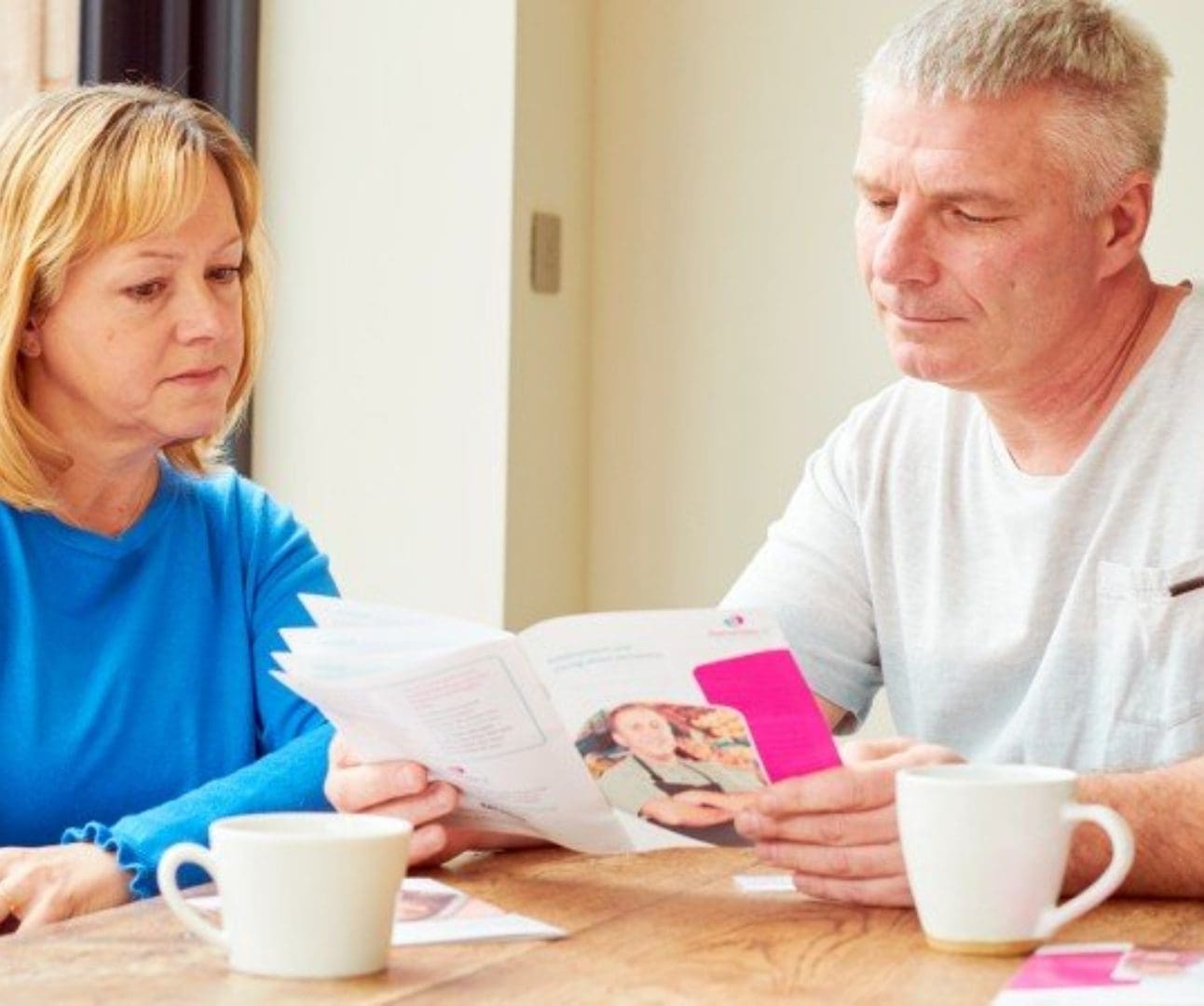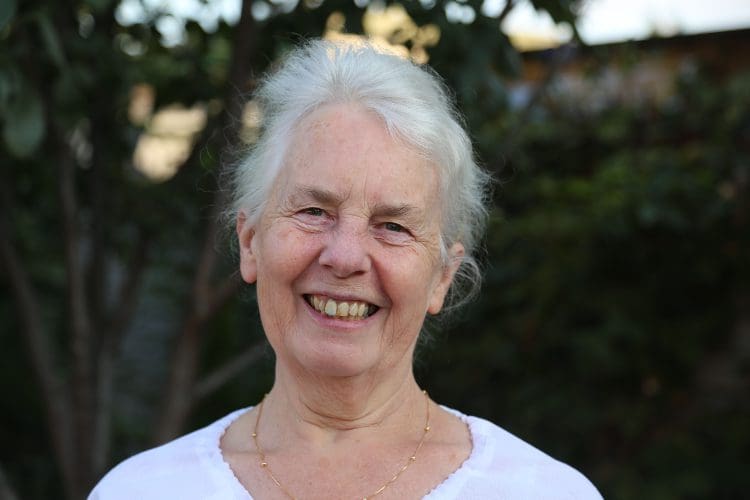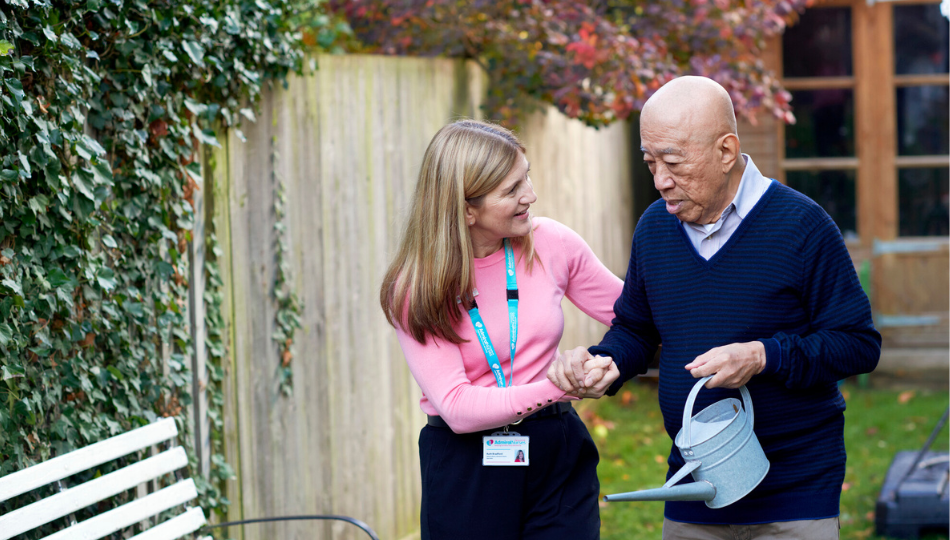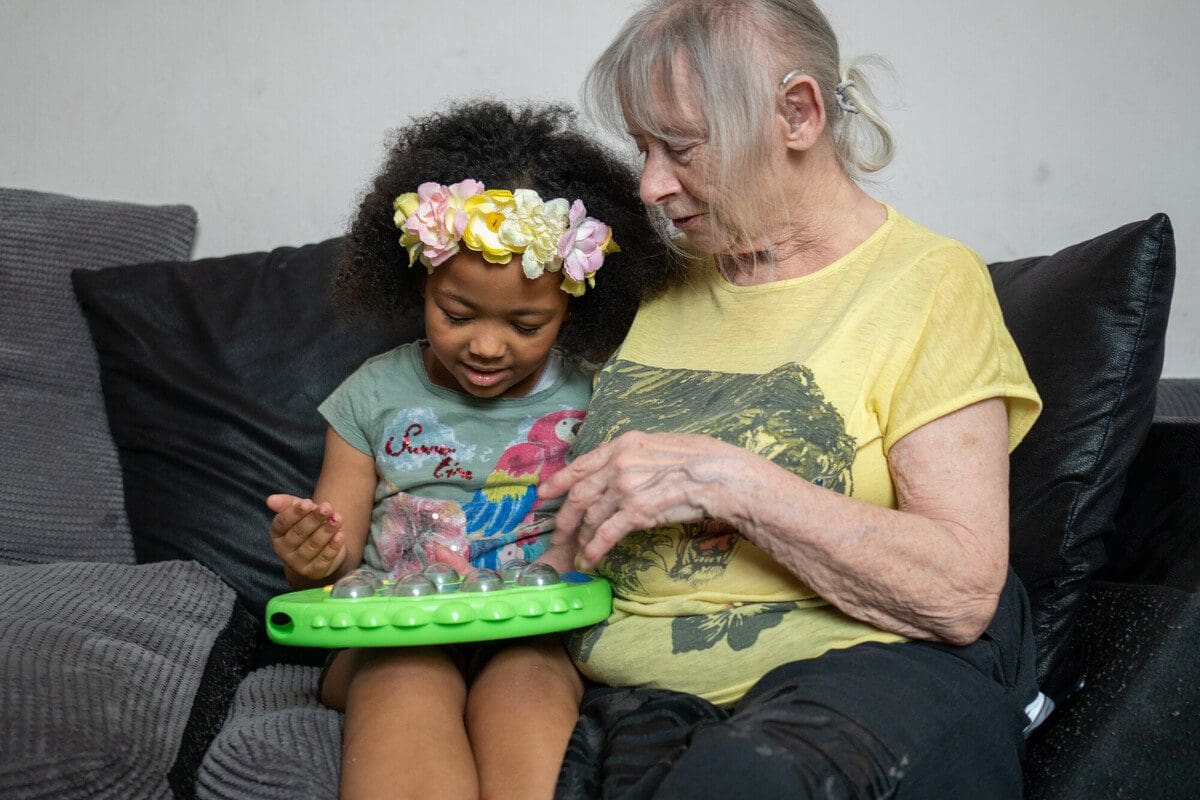
Young onset dementia
Information and resources about young onset dementia, where symptoms develop before the age of 65.

Jennifer Bute was diagnosed with young onset Alzheimer’s disease aged 63. She lives alone and has developed many coping strategies in order to maintain her independence.
I was diagnosed with young onset Alzheimer’s disease in 2009 aged 63, although I was aware much earlier things were not right and had taken early retirement. It started with getting seriously lost and not recognising people, as well as the usual memory difficulties. My husband and I moved to a dementia friendly village in 2011; he died unexpectedly four months later.
I have always been computer literate so now my computer is my backup brain. My son persuaded me to change to a Mac laptop and I was amazed how user-friendly it is. I have an online calendar which is set up for automatic reminders and can be networked with my children’s computers, so they always know what I am doing or where I am.
Writing notes to myself does not work as I either forget to read them, do not see them or cover them up. I leave a card on the floor where I will notice it. I also leave things to post, or take anywhere, by the front door.
I am now indebted to my Alexa device. She reminds me to take my medication and checks on whether I have. She also reads me books, plays me any song or piece of music without my needing to remember the exact details and answers any question I ask without my having to look it up.
I find shops overwhelming so do my shopping online. I have joined a brilliant regular one to two weekly, same day and time, food shopping delivery service. It has a suggested shopping list of items I have ordered in the past according to frequency. I can just tweak it up to the evening before it arrives – it is brilliant. It saves so much time and hassle ordering wrong sizes and quantities!
I cannot remember whether I have eaten or not and writing it down or ticking boxes does not work, as how do I know if I remembered? The only thing that works for me is to either only wash up once a day so I can see which dishes have been used or never put anything away until I go to bed.
I am aware people with dementia can ultimately forget to wash or cut their nails, so I use the computer to remind me and for changing bedlinen. I decide the day before what to wear and lay it all out on the carpet in order. I always go to the loo before leaving the flat.
I no longer wear a watch. I stopped when Covid required washing one’s hands regularly and never missed it, particularly the hassle of the twice-yearly hour change. The time is shown on so many other platforms and I can always ask Alexa.
I cannot work out how to answer my mobile, so I only use it for texts as I cannot understand what people are saying on the phone, but I do use Zoom and Telegram – a video / chat / photo sharing platform.
I find it hard to read but I enjoy simple games on the iPad and being read books on my Alexa. It is so much easier as I never remember where I got to or even what I was reading – but she does! Television is very confusing; so I watch DVDs or BT Vision recordings of familiar programmes as it learns what I like, and I do not have to set it.
I am blessed by belonging to a local church. They take me to church and out for meals. I have a card I can give to people which describes who I am, my diagnosis, what I may struggle with, and contact telephone numbers.
I find annual subscriptions solve the problem of gifts for my teenage nephews – they can choose and review each year. There are also many subscriptions suitable for adults; plant and flower deliveries do not need to be wrapped or taken to the Post Office.
My family make me up six weeks medication at a time. I used a pivotal dispenser for a while but now only use the Rainbow dispensers as Alexa reminds me and checks up on me!
I always try to put things back in the right place straight after using them, but there are now several clever ways to locate items. I use the Tile app and its Bluetooth-enabled tracking tile devices. They are brilliant and can be attached to anything. Lost items can be located via the app and play a tune so you can find them. The app is wonderful and has frequently been a lifesaver for me.
My ability to knit has reduced to simple items such as pullovers but is still a great form of relaxation.
Locator devices are much more sophisticated now, but they almost always involve other people or subscriptions and can be costly, so now I just do not go out on my own.
Dr Jennifer Bute is passionate about helping people understand and learn more about young onset dementia. Her website Glorious opportunity contains useful videos and resources and she has written a book, Dementia from the inside, about her life with dementia.

Information and resources about young onset dementia, where symptoms develop before the age of 65.

Help us raise vital funds, improve care and support for families facing dementia and spread the word about our specialist dementia nurses.

Sharing your story with Dementia UK can help to inspire and reassure others who may be going through similar things.